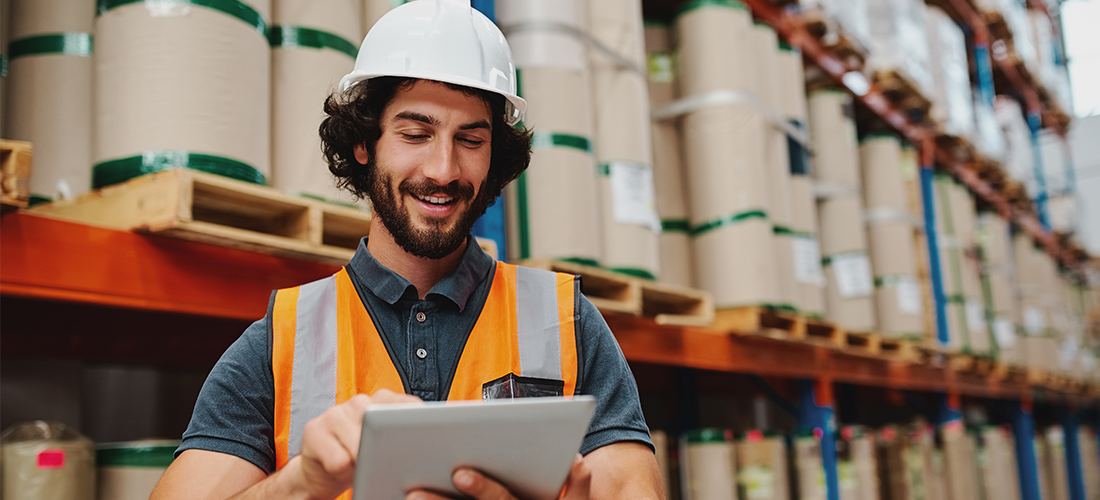Many of these technologies are causing a buzz of excitement within the transportation industry and with good reason. Through the application of real-time data solutions mixed with advanced analytics the logistics industry is set for monumental change.
This leaves many people asking what does this mean for the future?
Real-Time Operations
Logistics has been a paper-heavy industry in past years. The move to digital solutions has significantly benefited companies and has also opened the door to real-time solutions. Fleet managers and administrators can make quicker decisions and deliver remote commands with the help of accurate and the most up-to-date information.
This can help fleets avoid developing weather issues, find new routes to avoid heavy traffic and send out alerts for accidents or major traffic incidents. Each vehicle can be monitored in real-time to estimate delivery times or to provide support when a truck breaks down.
Data-Driven Decision Making
Whilst real-time solutions will play a key role in the future of the logistics industry, data-driven operations will be equally as key. Although similar in concept, they are not the same thing, particularly when focusing on machine learning and artificial intelligence (AI).
Machine learning tools can analyse vast amounts of data to discover trends, patterns and anomalies. They are able to do this while the operation is live and with incredible precision. It enables an operation to progress forward whilst gaining valuable insight from AI systems. Due to this, data-backed decisions are much more informed, accurate and successful.
One study showed that 98% of third-party logistics firms and 93% of shippers regard data-driven decision making as essential to the future of supply chains. Real-time operations are only possible with data-driven decision making thanks to the fast and responsive constant collection of data.
Optimised Processes
Logistics and freight processes can be enhanced considerably through increased transparency and more readable information. Data solutions help to optimise network routes, improve delivery and exchange times, forecast equipment services and enable preventive fleet maintenance.
Equipping a truck with IoT sensors enables nuanced data to be collected. This information can be analysed to identify patterns or details on the inner workings of equipment. Systems can potentially learn to spot potential breakdowns through looking at engine performance and mileage. This allows manager to take action before major delays occur in the operation.
These same IoT sensors can be attached to shipments to inform decisions about a trip. Alerts can be sent to detail a temperature drop or increase that could prove disastrous if gone unnoticed. They could alert drivers to increased pressure levels causing a strain on transported goods reducing damage during transit. Technology boosts transparency and allows for optimised decision making to the environment and beyond.
Automation
Fleet managers cannot be expected to stay on the control base for 24 hours a day yet there are drivers on the road at all times. This presents an issue; fleet support must always be there even without the resources to do so. This is where we can turn to technology once again to provide the answer. Advanced freight software, powered by data analytics and AI can provide the solution.
With the use of these tools, big data can make informed decisions and commands and provide ongoing support to drivers when managers are away. This is the logistics answer to Alexa and Siri in a much more intelligent way. A smart system navigates all managerial tasks such as alerting road side assistance or finding an optimised route without needing the presence of a human.
This smart system can also be optimised for driverless vehicles as they’re fed commands and updates while out in the field.
Security and Transparency
Blockchain is a revolutionary technology that is just being introduced to the logistics industry. It improves security and boosts productivity by creating more transparency to the operation.
Walmart started using blockchain to combat the problem of foodborne illnesses within its produce, particularly lettuce. If problem is identified during the shipping process, they now have the ability to track goods all the way to the store in order to remove them. This revolutionises freight completely, allowing for precise decisions and reactions to the entire supply system.
Security is also improved from the increase in transparency. Blockchain allows produce to be measured and tracked along every stage of the supply chain, this eliminates the possibility for goods to be swapped or stolen. If they are stolen it makes it much easier to identify the individuals involved.
The Future of the Industry
Freightech is creating a new field through data-driven processes and solutions. Data-driven decisions are now possible in real-time, along with advanced automation, to boost productivity and accuracy.
Blockchain enhances security and transparency introducing things never seen before in the industry, such as being able to identify contaminated goods from any stage in the supply chain. Freightech is the future and the industry is already benefiting from these advanced solutions.

